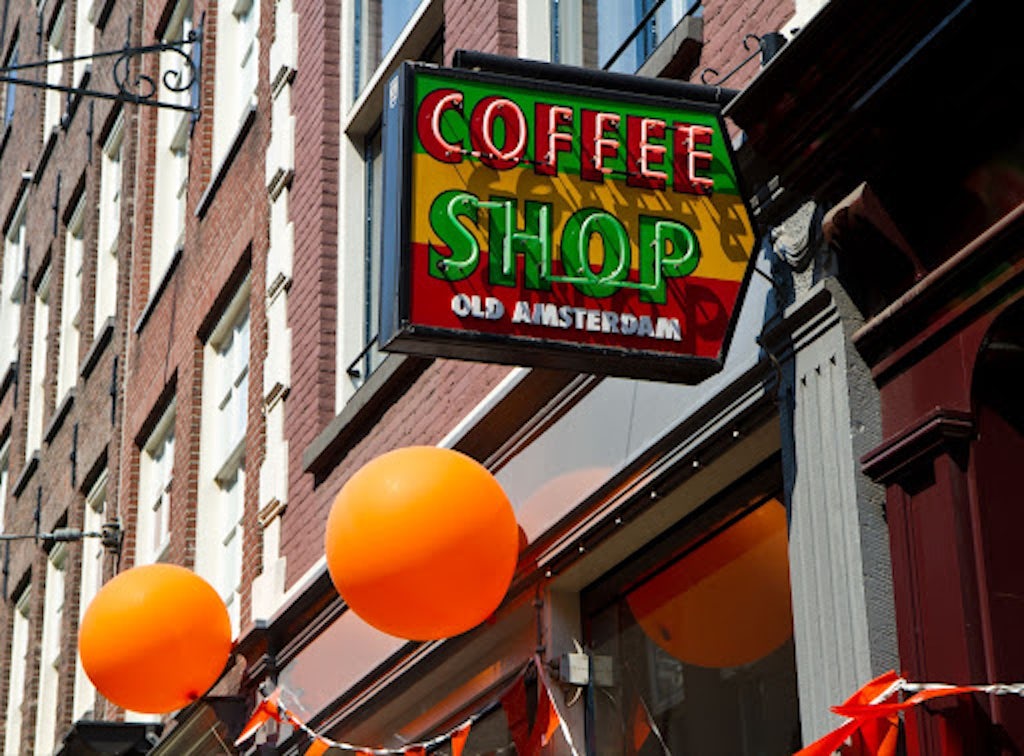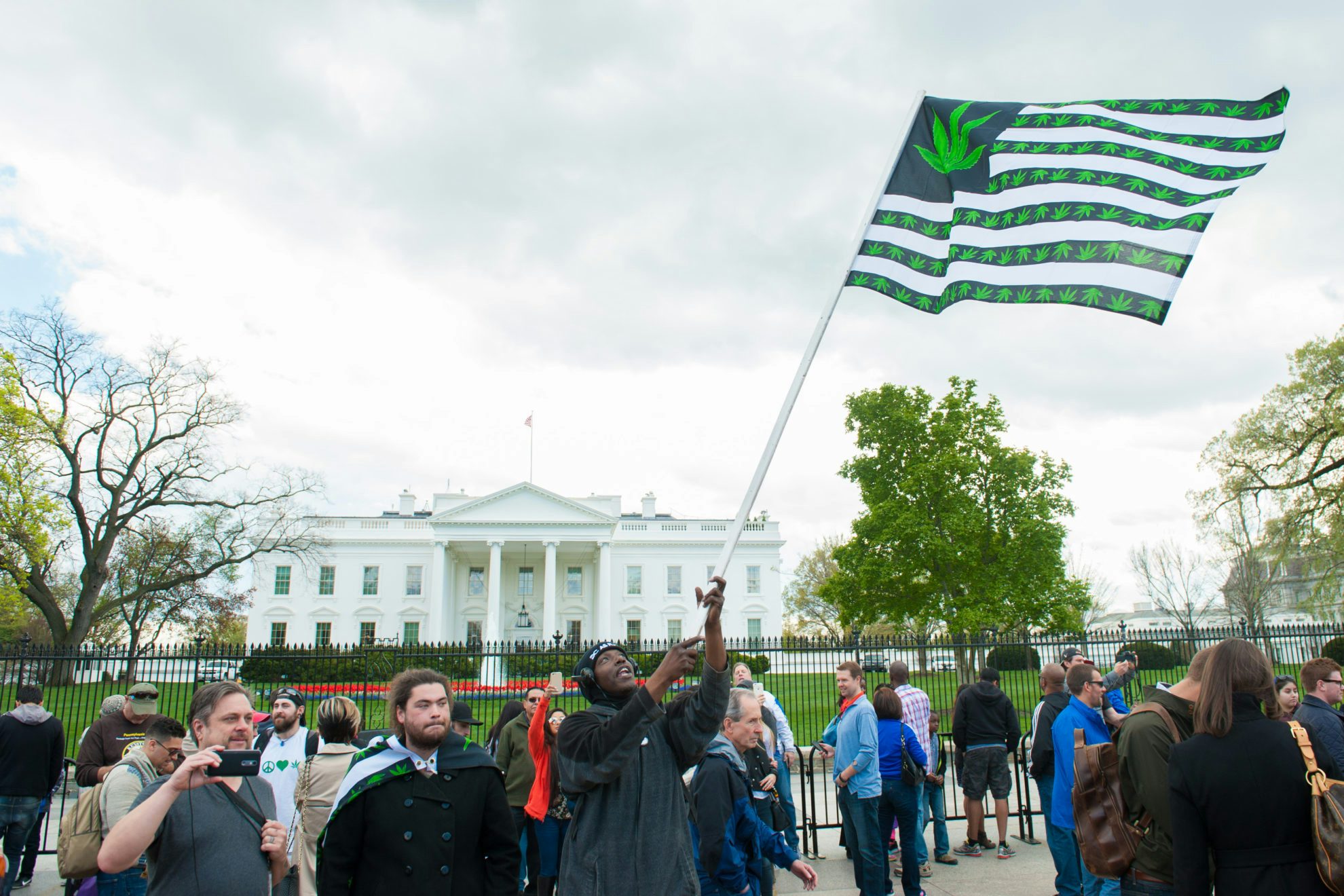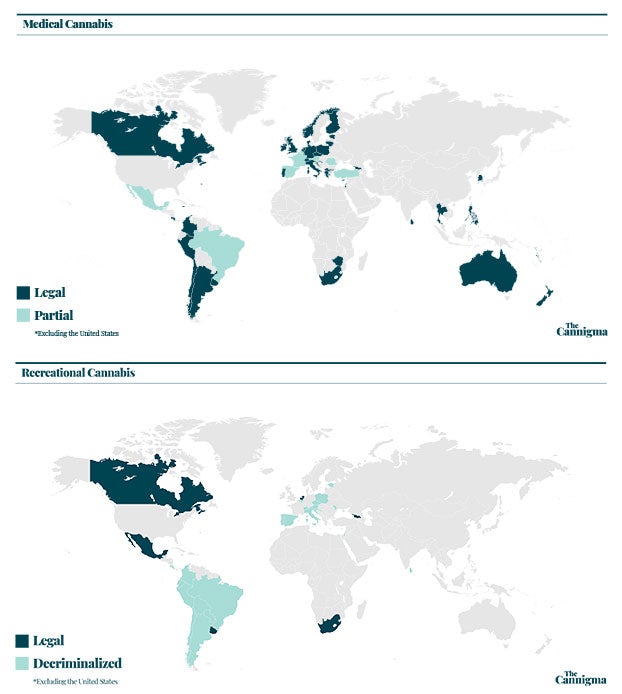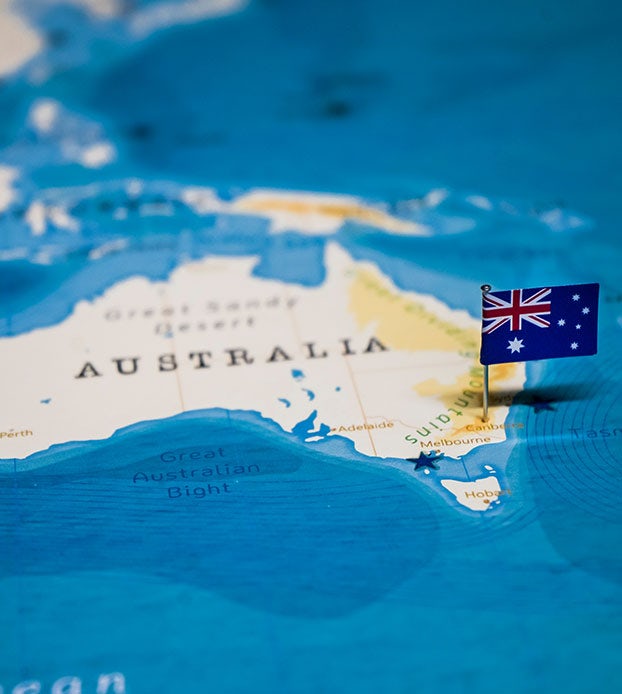Medical: Legal
Recreational: Decriminalized
For decades, the Netherlands has had the public image of a cannabis paradise on the continent of Europe, and the iconic Amsterdam “coffee shop” is a well-recognized symbol of the country, along with tulips fields, windmills, and chips with mayonnaise.
But the countless tourist encounters along the canals of the capital don’t tell the whole story. Cannabis is actually illegal in the Netherlands unless it is purchased and consumed on-site at a coffee shop. The system is better categorized as a sort of system of tolerated recreational use.
Cannabis has been decriminalized in the Netherlands since 1976. Possession of small quantities of drugs is illegal in the Netherlands, but Dutch authorities do not prosecute the possession of small amounts for personal use and low volume sales via strictly regulated retailers. However, possession of more than 5 grams of cannabis or 5 cannabis plants does open you to prosecution.
In 2003, the Netherlands legalized medical cannabis.
Home cannabis cultivation is not allowed, however, if the person has less than 5 plants, “it will be assumed that there is no question of any professional trade or business being conducted,” according to the government of the Netherlands.
It is against the law in the Netherlands to possess, produce or deal soft or hard drugs, but the use of drugs by people over the age of 18 is not a criminal offense. Under Netherlands law, soft drugs include hash, marijuana, sleeping pills, and sedatives, among others.
Is weed legal in the Netherlands?
Though it may come as a surprise to many outsiders, it is actually not illegal to sell cannabis in weed coffee shops in the Netherlands. The cannabis that is openly sold in the coffee shops is grown illegally by underground growers and coffee shops are not allowed to have more than 500 grams on the premises at any given time.
That said, the country does not prosecute for the offense because the Netherlands “has a policy of toleration regarding soft drugs. This means that the sale of soft drugs in coffee shops is a criminal offense but the Public Prosecution Service does not prosecute coffees shops for this offense,” according to the Dutch government.
The Netherlands allows the sale of cannabis in coffee shops provided they meet the ‘toleration criteria’:
- Must not cause any nuisance
- Are not permitted to sell hard drugs
- Are not permitted to sell cannabis to minors
- Are not permitted to advertise drugs
- Are not permitted to sell large quantities (over 5 grams of cannabis) in a single transaction.
It is up to municipalities to determine whether to allow coffee shops to operate and how many.
In recent years though, the Dutch government has worked to limit the coffee shop trade and have it focus more on the local market and not the hordes of tourists who pass through Amsterdam and other Dutch cities every year. Local Amsterdam leaders have also been vocal in their intent to end the coffee shop trade, to put an end to the often raucous and seedy behavior that can typify the tourist-heavy areas of the city where coffee shops thrive.
At coffee shops, cannabis can be sold but no alcoholic drinks may be sold or consumed.
The number of coffee shops across the county has been in decline in recent years, from 730 in 2005 to 570 in 2019. Regardless, there are still currently around 150 in Amsterdam alone, including world-famous spots like Barney’s, the Bulldog, Abraxas, and Greenhouse.
The products sold at coffee shops include cannabis flower, hashish, and edibles, with a wide variety of Dutch strains and genetics from overseas.
What are the laws for tourists in 2022?

As of late 2021, tourists can still patronize coffee shops in the Netherlands, though the era of freely smoking weed in Amsterdam (and elsewhere) may come to an end soon.
Some municipalities have had anti-cannabis measures in place for some time, including Maastricht in the south of the country with the borders of Belgium and Germany right nearby. Since 2011, the city has banned non-residents of the Netherlands from purchasing cannabis at their coffee shops, mainly to stem the influx of cross-border tourists.
The relative antipathy towards coffee shops isn’t directed at cannabis per se, rather, at the subset of tourists attracted by the marijuana trade, and Amsterdam’s world-famous Red Light District. As Amsterdam Mayor Femke Halsema has said “Amsterdam is an international city and we wish to attract tourists, but we would like them to come for its richness, its beauty, and its cultural institutions.”
What does Dutch law permit for medical patients?
The medical marijuana program of the Netherlands is run by the country’s Office of Medicinal Cannabis (OMC), which is also responsible for the production of cannabis for medical and scientific purposes.
The OMC provides medical cannabis exclusively to pharmacies, hospitals, pharmacy-holding GP’s, and veterinarians.
There are currently five types of cannabis that are made by the company Bedrocan for the OMC, with THC levels ranging from 1% to around 22%, and CBD levels that range from less than 1% to over 9%. According to the OMC, two of these are available as “dried flower heads,” three are sold as “finely-ground flower heads” which are meant to be easier to use for people with poor hand function.
Are there any cannabis products apart from buds allowed?
Medical marijuana patients can also attain CBD oil with a prescription at Dutch pharmacies.
Who qualifies for medical marijuana in the Netherlands?
To gain a prescription for medical cannabis in the Netherlands, a patient does not need to join a specific state registry. They merely have to receive a prescription from a doctor just like they would for any medication.
The OMC lists the following conditions as ones that can be treated with cannabis:
- Pain
- muscle cramps and muscle spasms caused by MS or spinal cord injury
- Nausea, decreased appetite, weight loss and weakness related to cancer and AIDS
- Nausea and vomiting caused by medication or radiation therapy for cancer, hepatitis C or HIV infection and AIDS
- Chronic pain (particularly nerve pain, for example caused by nerve damage, phantom pain, facial pain, or pain that persists after a cured shingles infection)
- Tourette’s syndrome
- Glaucoma, if standard treatment is not effective enough
- Various forms of epilepsy (also in children)
The OMC also states that “we are also learning from the experiences of doctors and patients who use cannabis for the treatment of other conditions,” including Crohn’s disease and ulcerative colitis, migraine and cluster headaches, dystonia (abnormal muscle contractions), rheumatic diseases such as rheumatoid arthritis and fibromyalgia, ADHD, posttraumatic stress disorder, restlessness caused by Alzheimer’s disease, itching and brain trauma.
Average costs
According to Bedrocan, medical patients in the Netherlands pay an average of 5.80 Euros ($6.78) per gram for cannabis, excluding the prescription fee. The price is the same regardless of the variety of cannabis selected by the patient.
In weed coffee shops in Amsterdam and beyond, the prices can vary widely depending on the type of cannabis product and the location of the establishment. At Barney’s, a world-famous coffee shop in central Amsterdam, hash can range from 12 to 16 Euros per gram, while cannabis flower is priced from around 13 to 16 Euros per gram, and up to 34 Euros for specific California strains.
Meanwhile, at Doctor Green in the much less tourist-laden city of The Hague, cannabis flower ranges from 10.5 Euros per gram to 22 Euros, while hash sells from 7.50 to 12 Euros per gram.
Sign up for bi-weekly updates, packed full of cannabis education, recipes, and tips. Your inbox will love it.

 Shop
Shop Support
Support
















